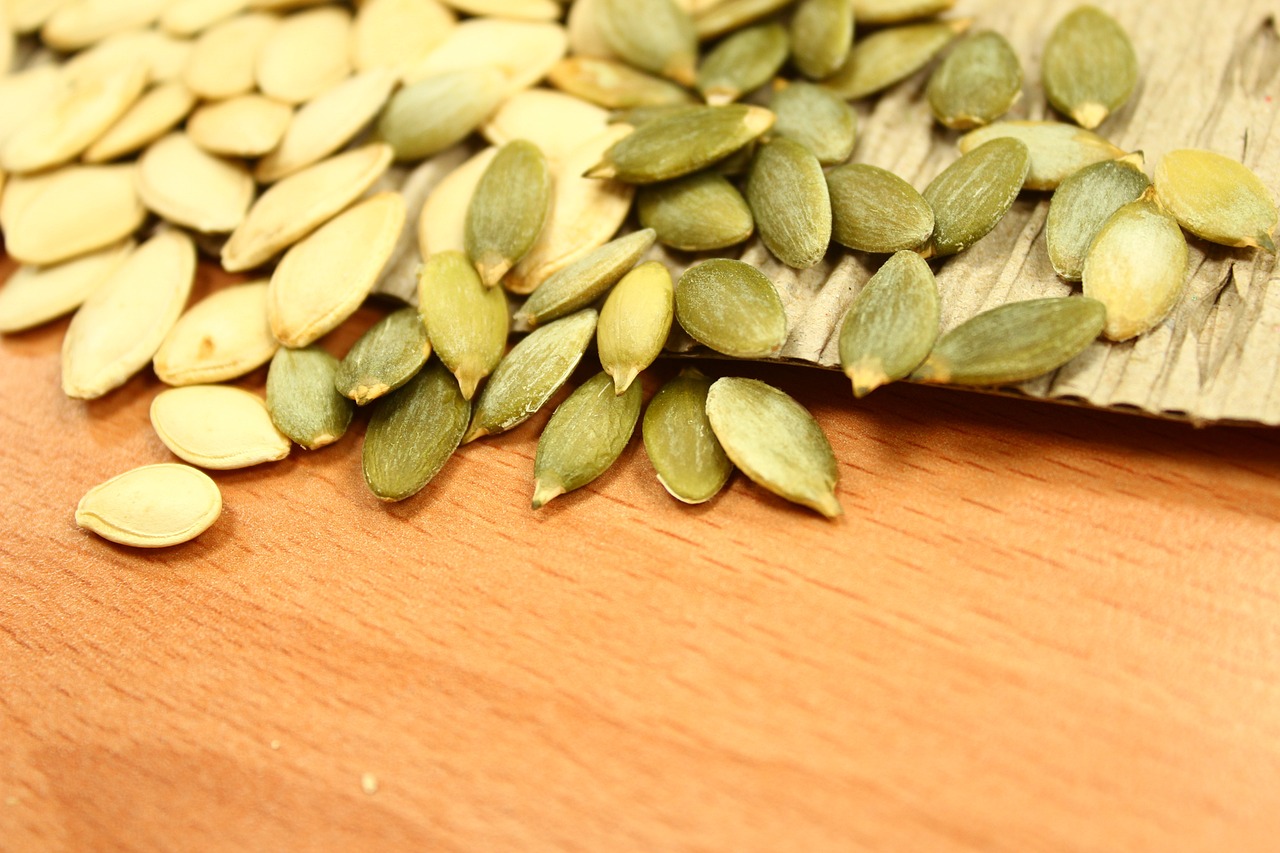
Pumpkin seeds, also known as pepitas, are a highly nutritious food with various health benefits. Consumed in different forms like roasted, raw, or as oil, they are recognized as a superfood that can enhance overall health. Nutritionally, about 30 grams of pumpkin seeds provide approximately 9 grams of protein, are a good source of dietary fiber, and contain healthy monounsaturated and polyunsaturated fats that support heart health. They are rich in B-complex vitamins, vitamin K, and important minerals such as magnesium, iron, zinc, manganese, and copper. Additionally, pumpkin seeds are high in antioxidants like carotenoids and vitamin E, which help reduce oxidative stress. This article discusses the health benefits of pumpkin seeds and recommends them as a valuable addition to your daily diet.
- Improves Heart Health- Magnesium is crucial for heart health as it helps regulate blood pressure, maintain normal heart rhythms, and support muscle function, including that of the heart. A lack of magnesium is associated with higher risks of cardiovascular issues like high blood pressure and heart attacks. Pumpkin seeds are an excellent plant-based source of magnesium, contributing to these health benefits. They are rich in healthy fats, which can lower LDL cholesterol and raise HDL cholesterol, preventing plaque buildup in arteries and reducing the risk of atherosclerosis and heart-related conditions. The magnesium in pumpkin seeds also aids in relaxing blood vessels, improving blood flow, and lowering blood pressure, thus reducing heart strain. Additionally, the iron and copper in pumpkin seeds support red blood cell production and oxygen transport throughout the body, ensuring that vital organs receive the necessary nutrients for optimal function.
- Supports Prostate Health- Zinc is essential for prostate health, with the pumpkin seeds having one of the highest zinc concentrations in the body. Adequate zinc levels support hormone regulation, immune function, and protection against infections and inflammation. A deficiency in zinc may increase the risk of prostate issues, including enlargement and cancer. Benign prostatic hyperplasia (BPH) is a common condition in men characterized by an enlarged prostate, leading to urinary problems. Pumpkin seeds are a natural source of zinc and their oil can alleviate BPH symptoms, helping to regulate hormone levels and prevent excessive prostate growth. Clinical studies show that men consuming pumpkin seed oil reported improvements in urinary frequency and flow, likely due to the seeds’ healthy fats and antioxidants which enhance urinary function and alleviate symptoms associated with prostate conditions.
- Promotes Better Sleep- Pumpkin seeds may help those with insomnia or poor sleep quality due to their high content of tryptophan, which transforms into serotonin and then melatonin, the hormone responsible for sleep. Additionally, the magnesium in pumpkin seeds aids in relaxation and enhances sleep quality. Eating pumpkin seeds a few hours before bedtime could facilitate easier sleep onset and improve overall sleep quality.
- Supports Bone Health- Pumpkin seeds are a great source of magnesium, essential for bone formation and density. Sufficient magnesium intake is associated with greater bone mineral density, lowering osteoporosis risk, particularly in postmenopausal women. Additionally, the high phosphorus content in pumpkin seeds supports stronger bones and teeth, promoting overall bone health throughout life.
- Helps Manage Diabetes- Pumpkin seeds are beneficial for individuals managing diabetes or at risk of it. They help regulate blood sugar levels because of their fiber content and antioxidants, which enhance insulin regulation. The magnesium in pumpkin seeds also contributes to insulin sensitivity and blood sugar control. Eating these seeds may lower blood sugar spikes after meals, making them advantageous for those with type 2 diabetes.
- Aids in Weight Loss- Pumpkin seeds can support weight loss because they are high in fiber and protein, which promote feelings of fullness and reduce snacking. Their healthy fats also contribute to satiety, making them a beneficial addition to snacks or meals to help control overeating and achieve weight loss goals.
To incorporate pumpkin seeds into your diet, consider these options: Snack on roasted pumpkin seeds with sea salt or spices for a crunchy treat. Sprinkle them over salads for added texture and nutrition. Add a tablespoon to your morning smoothie for extra fiber, protein, and healthy fats. Mix pumpkin seeds into baked goods like bread, muffins, or granola bars for an additional nutrient boost. Alternatively, use cold-pressed pumpkin seed oil as a salad dressing or drizzle it over roasted vegetables for enhanced flavor.
-Triparna







